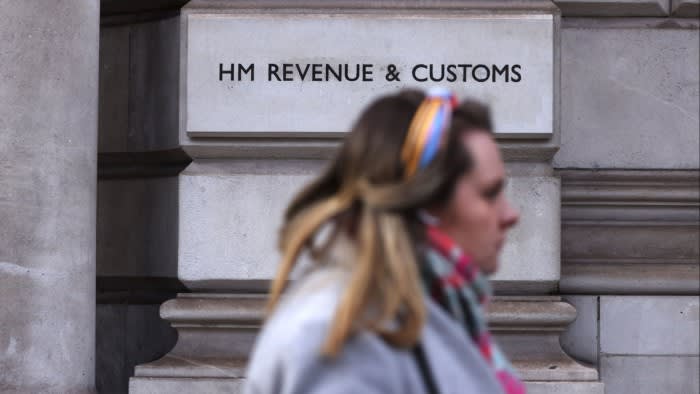Stay informed with free updates
Simply sign up to the UK tax myFT Digest — delivered directly to your inbox.
Several experts have said tax is potentially due on many of the freebies Labour politicians have received and called on HM Revenue & Customs to give greater scrutiny to political gifts.
Prime Minister Sir Keir Starmer and some of his most senior colleagues have come under fire in the past few weeks over donations they accepted from Lord Waheed Alli, a Labour peer and former chair of online clothing retailer Asos.
More recently, Starmer received four tickets to see Taylor Swift worth £4,000 from the Premier League, and £20,000 of accommodation from Alli. This takes the total value of Starmer’s freebies to more than £100,000.
David Whiscombe, an independent tax consultant, said: “For employees or officeholders, there is specific legislation that if you receive any benefit — which is widely defined, so not only gifts or holidays, it’s any sort of benefit — that is given by reason of the employment or for this purpose the holding of an office, then it is taxable.”
He added: “One would hope and assume that the Revenue are alert to the possibility that there might be a tax charge due.”
Andrew Park, partner at Price Bailey, an accountancy firm, also said that items given because of someone’s work activities would normally be taxable by HMRC.
“As a general principle, if cash or benefits are given to people, in connection with either their employment or self-employment, they’re taxable as earnings. The rules are no different for MPs,” he said.
“To the extent that people receive things like clothing and spectacles to help them perform their work duties the law is clear that they’re still taxable if they can be used for anything other than performance of their work — otherwise, we’d all be filling our ‘everyday wardrobes’ as a tax-free perk.”
Robert Salter, director at Blick Rothenberg, another accountancy firm, also said some of the gifts given to politicians had “been very significant and arguably have job-related elements to them”.
“HMRC argues that the gifts given to media personalities or social influencers, which appear to be very similar in many cases to the gifts received by politicians, are liable to income tax and in some cases also National Insurance contributions,” he said. Salter added it “doesn’t seem equitable” that similar type of gifts seemed to be being scrutinised differently.
Dan Neidle, founder of Tax Policy Associates, said the tax experts who make up the think-tank had not been able to find “any evidence that an MP has ever been taxed on a gift even if it’s a quid pro quo”.
However, the rules on gifts are complicated, include some exemptions and are very dependent on the facts. Gifts made by a personal friend because of the friendship are not taxable. Sometimes it can be difficult to understand if tax is due without knowing the personal relationship between the recipient and the donor.
Whiscombe said: “Purely looking at the tax, when Lady Starmer gets a free frock from Lord Alli rather than my wife, is that because her husband happened to be PM and I’m not PM? The issue is that there might be lots of reasons, for example she got it because of a personal friendship.”
Meanwhile, there are different tax rules when a business, rather than an individual, makes a gift. In general, expenditure on business entertainment or gifts is not allowable as a deduction against profits.
Philip Milton, chartered financial planner at Philip J Milton & Company, said: “I think HMRC ought to check into said donations to find out if they have originated from a business and if any tax adjustment has been made in its accounts.
“If as personal owners the donors had used their after-tax income from their business to buy them, then that’s a different matter but businesses can’t simply allocate their goods and services to a politician (or any other) willy-nilly without relevant tax consideration and liability covered.”
The Labour party and Lord Alli have been approached for comment.
HMRC said: “We’re committed to ensuring everyone pays the right tax under the law, regardless of wealth or status.”

